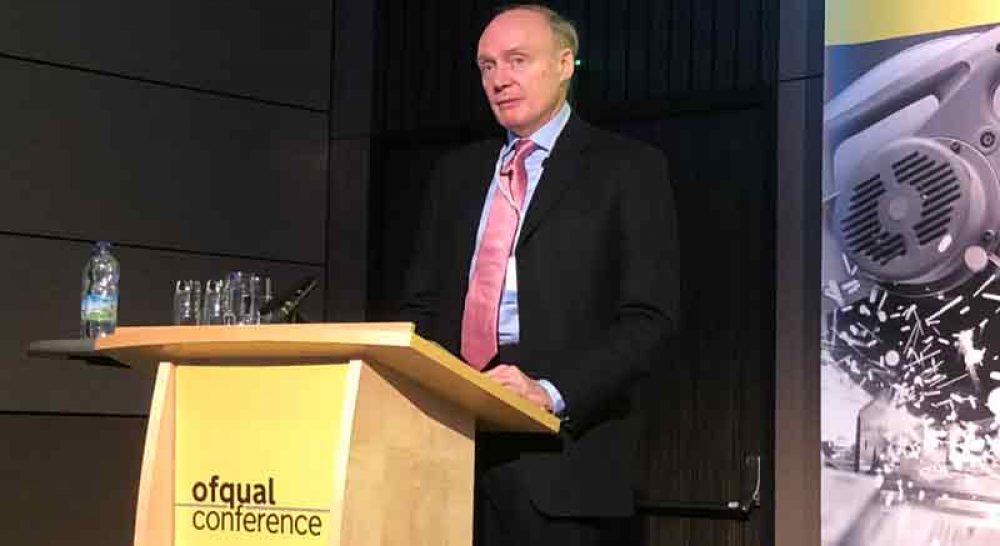The boss of the organisation that will be responsible for T-levels has admitted he has deep concerns at the “worryingly tight” delivery timeline.
Sir Gerry Berragan, the chief executive of the Institute for Apprenticeships, made his fears known during a keynote speech at an Ofqual conference for vocational education awarding organisations in Birmingham this week.
He discussed the need to “articulate” what T-levels are and how they fit into the technical education landscape, saying it was pivotal that the IfA has “success” with the wider rollout.
But his unease at the viability of the government’s proposed 2020 timeline for the first three routes was clear.
“The last thing we should do is start the first three on the wrong footing and give them a bad reputation,” he said.
I think the timeline for delivery of the three pathways is worryingly tight
“We need to deliver these successfully from the outset. I think the timeline for delivery of the initial three pathways is worryingly tight in that regard.”
He is the latest – but perhaps most significant – industry figure to admit concern about the tight timescale for T-levels, given the IfA’s central role.
A spokesperson for the Department for Education admitted its timetable is “ambitious”, but said it remains confident of meeting the 2020 rollout.
“We know that the timetable for T-levels is ambitious,” she said. “We are working closely with Ofqual and the IfA to make sure we get these reforms right.
“New T-levels are going to give young people a high-quality technical education, equal in esteem to A-levels, and we’re on track for teaching to start from September 2020.”
T-levels have been designed to increase the prestige of technical qualifications, as match for A-levels.
The first three subject areas to go live in 2020 will cover digital, childcare and education, and construction.
It was announced last October that a further eight subject “routes” should be launched from 2022.
Ofqual’s boss Sally Collier also discussed the regulator’s concerns about T-levels.
The body released its response to the government’s T-level consultation two weeks ago, in which it brought up various worries about plans for a single awarding organisation per qualification, and the FE sector’s ability to cope with yet another set of reforms.
“It is absolutely essential that the majority of the content is set before we turn to assessment strategies and qualifications design,” Ms Collier told the conference.
“Government, quite rightly is wanting to get on with it, to deliver on its commitments and see these qualifications as fundamental for improving our skill base. That means the timelines are very ambitious, and we all need to be cognisant of those risks.”
We know that the timetable for T-levels is ambitious
“That means our timelines are very ambitious. We all need to be competent of those risks.”
Her organisation has been working with the IfA and DfE for “some months” about the role Ofqual will play in helping deliver the programme, and she described “extremely good progress”.
The Confederation of British Industry shares Sir Gerry’s opinion that the current delivery timetable is unviable.
In its own response to the T-levels consultation, representatives went so far as to say they think the full delivery should be delayed further, until 2023.
These views will no doubt heap pressure on Anne Milton to delay T-levels further, after she pushed them back from 2019.
In July last year, the skills and apprenticeships minister announced first three routes would be delayed until September 2020 – a year later than planned.









Your thoughts